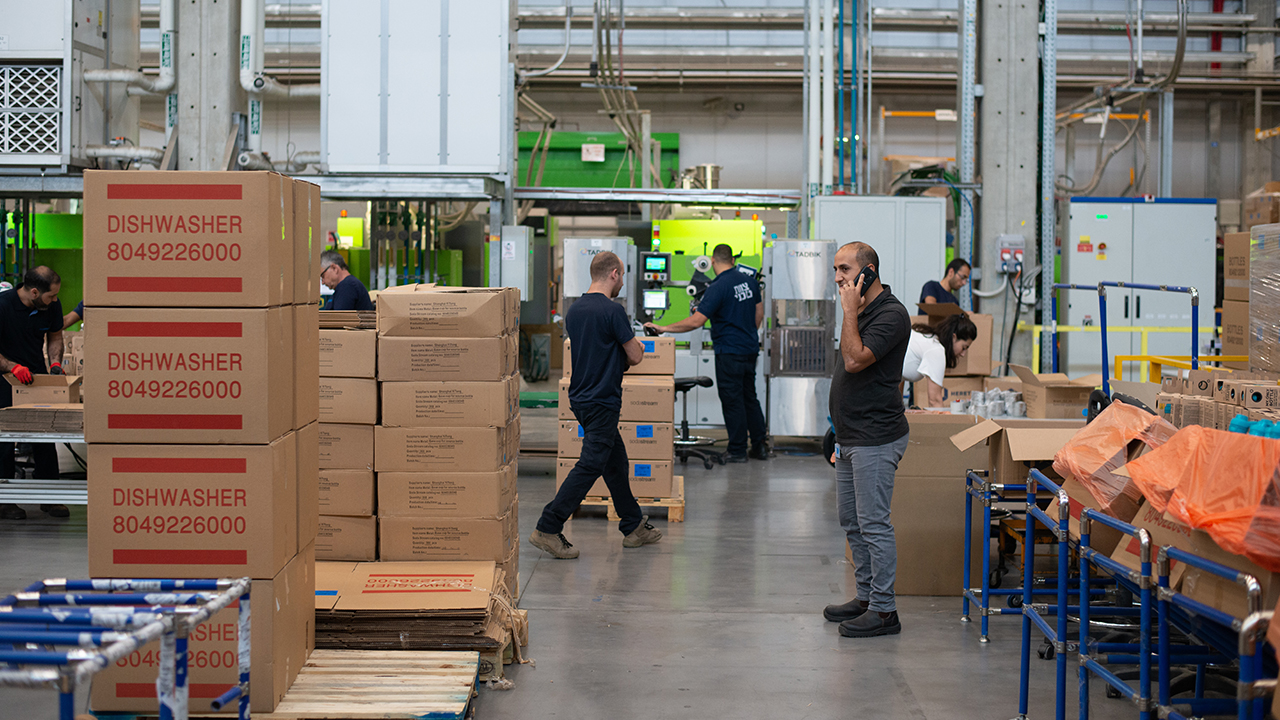FORGE helps startups localize to mitigate risk and reduce their carbon footprint

Remember trying to buy toilet paper in March 2020? What about PPE for your essential employees? Pandemic supply chain disruptions still affect us, from auto makers struggling to source semiconductors to builders languishing on months-long waitlists for windows. Business leaders are realizing that offshoring has costs they didn’t foresee. More complex supply chains mean more places where something can go wrong, and shipping materials and products overseas burns a lot of fuel and emits a lot of carbon.
The supply chains consumer goods companies use have much greater environmental effects than their own operations. According to McKinsey, more than 80% of greenhouse gas emissions in most consumer goods categories come from supply chains. To keep global warming below 1.5°C and avoid the worst effects of climate change, the world needs to cut its carbon emissions in half by 2030. It’s a tall order, but product-based companies can contribute in a big way by reducing their supply chain emissions.
The advantages of localized supply chains
To lower risks and emissions, many companies are localizing—bringing production back to the country where they’re based. In 2021, Thomas reported that 69% of US-based industrial- and manufacturing-sector companies are “likely to bring manufacturing production and sourcing back to North America” in the face of recent disruptions.
Why? Localization offers more than supply chain resiliency. It reduces often overlooked costs in shipping, tariffs, and overseas management fees. It’s easier to communicate with manufacturers onsite. Plus, it’s just a drive down the road to watch your product coming off the line! Companies and their customers can feel good about supporting the local economy. And the environmental benefits are significant. After all, it burns a lot less gas and jet fuel to ship materials to Cambridge from Marlborough than from Luxembourg or Shanghai, and it’s easier to track your supply chain emissions when the chain is shorter.
FORGE has long been a force behind localizing manufacturing in Massachusetts. We connect startups and innovators with our Supply Chain Network of hundreds of forward-thinking, innovation-friendly regional manufacturers, design firms, and engineers. We work closely with startups and innovators to understand their needs and provide warm introductions to right-fit producers for their physical products—often within a 90-mile radius. We’ve made more than 2,500 connections between startups and the regional supply chain, creating an economic value of more than $30 million and supporting more than 3,800 innovation and manufacturing jobs.
“If you can invent it locally, you should be empowered to make it locally,” our executive director Laura Teicher said.
Localization success story: How FORGE is making an impact
One of FORGE’s localization successes is Tank Utility. Originally a Boston-based startup, they developed an IoT device which senses propane tank levels, alerting the delivery company when the tank is low. The automated alerts reduce deliveries, saving users up to 50% on operational costs.
Tank Utility needed to scale production. FORGE introduced them to a manufacturer in Haverhill, who started making hundreds of Tank Utility devices a month.
“[That the manufacturer] was 40 minutes away from our office allowed me to go on-site to talk through a quality issue, make a firmware update, or introduce a new product,” said Casey Monahan, NPI and Quality Engineer at Tank Utility.
As demand for the device grew, Tank Utility sought a manufacturer with the technology and infrastructure to distribute internationally. We connected them with East West Manufacturing.
“Having a contract manufacturer based in the US who does international [distribution] means we can leverage their existing infrastructure and logistical planning rather than having to replicate those elements ourselves. We can produce units in the tens of thousands per month,” Monahan said.
Since 2014, Tank Utility has eliminated over 1 million delivery miles and 2 million kg in carbon emissions for their delivered fuel customers. And that’s just them helping others reduce their supply chain emissions – their work with local manufacturers has kept their emissions down too.
Generac, a leader in back-up power generation products, acquired Tank Utility in 2021.
“With [Generac’s] support and the support of our partners and customers across the country, our company has achieved incredible growth,” Tank Utility said in a press release.
FORGE is proud to be part of Tank Utility’s success, and we’re especially proud of helping them team up with incredible local manufacturers!
In the coming months, we will be featuring more examples of how localizing the supply chain can serve startups and manufacturers in creating stability and efficiency while also reducing their carbon footprint. In the meantime, stay up-to-date on FORGE developments by subscribing to our email list below.
